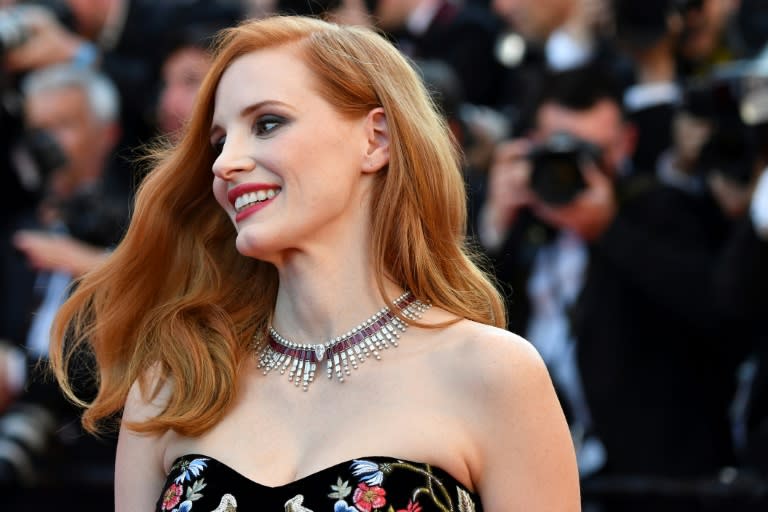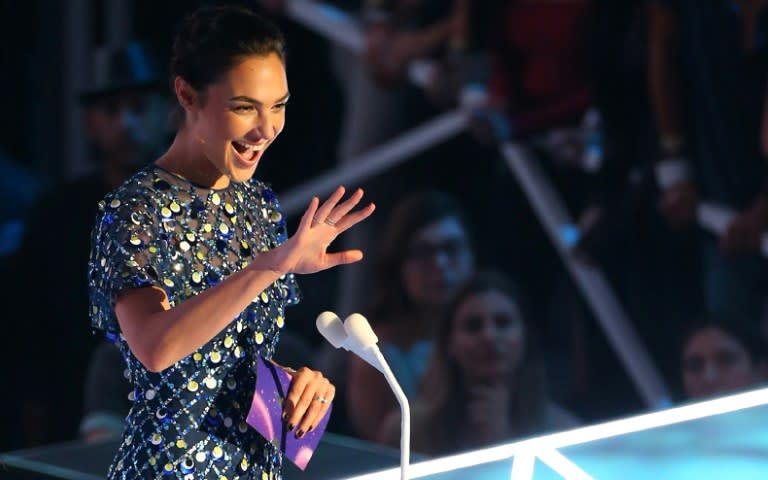Film industry gender push treads water
Joan Chemla never considered her gender to be an impediment to filmmaking, until she directed her first feature "If You Saw His Heart," which premieres Tuesday at the Toronto film festival. "I previously made three short films with the same determination and professionalism," she told AFP. But having shot her first big budget movie, she said, "for the first time I'm convinced that I was tested a lot more than a man my age with the same skills would have been." The lack of films shot by women directors at major festivals was highlighted earlier this year when Jessica Chastain spoke out over the under-representation of female directors in Cannes' official selection. The issue came up again last week in Venice, where Vivian Qu was the only woman among 21 directors competing for the festival's top prize. "Gender parity is front of mind, but the industry is slow to change," said Toronto International Film Festival chief executive Piers Handling. "In the United States, it's not getting better, it's actually getting worse for women," he said. Last July, the Toronto film festival announced a program to "seek out, develop and showcase top female talent in the film industry." One-third of the films screening at the festival this year were directed by women, up from 27 percent in 2016. But it wasn't easy attracting female talent, Handling said, with only 14 percent of the 7,299 festival submissions coming from women. - Hollywood gender bias - A push for gender parity in Hollywood has fallen flat, meanwhile, with fewer women directing blockbusters and the pay gap between male and female actors widening, recent data shows. "We have not seen an improvement in the number of female directors hired on top-grossing movies," University of Southern California professor Stacy Smith said. In a landmark 2016 study she showed that only 3.4 percent of Hollywood directors out of a sampling of 109 motion pictures were women. She is still tabulating data for her next annual report, but said preliminary estimates support what industry insiders say has been a struggle for women in Hollywood. According to Forbes' list of the highest paid stars published last month, female actors fared no better. "Transformers" star Mark Wahlberg, pulling in US$68 million, earned three times the amount paid to top earning actress Emma Stone, who won an Oscar for "La La Land" and is starring opposite Steve Carell in "Battle of the Sexes," which is premiering in Toronto. This is a setback from 2015 when Jennifer Lawrence came close to cracking the top salary echelons with US$52 million in earnings, largely because of her role in the "Hunger Games" movie franchise. - The comic book factor - So what is hindering women's success in Hollywood? The experts say it's down to chauvinism -- and comic books. "My research has demonstrated that when industry members think director, they think male," said Smith. "That is, the beliefs they hold about qualities of a successful director align with stereotypically masculine attributes: being aggressive, commanding, etcetera. "In combination with biased hiring processes, this means we see little progress for female directors." Handling said an explosion of action films based on comic books is also a factor. "The industry in the US is moving away from female-sensitive projects and more toward large budget, special effects films based on comic books, which I imagine a lot of women filmmakers are not that interested in directing," he said. There is more gender balance in indie films and in Europe, he said. "But the films that are noted, the films that make a difference, the big films like those made by Kathryn Bigelow ("Hurt Locker," "Zero Dark Thirty") and Ava DuVernay ("Selma," "13th"), seem to be going primarily to male filmmakers," he said. This summer, the top grossing film at the box office, "Wonder Woman," starring Gal Gadot, was billed as a feminist fantasy. "Wonder Woman comes to the United States to fight for women's rights, because this is the last bastion of possibility of equal rights for women," Gadot recently told Rolling Stone magazine. Not everyone agreed, however. "All of the self-congratulatory back-patting Hollywood's been doing over Wonder Woman has been so misguided," director James Cameron, who created strong female leads in films such as "Alien" and "The Terminator," told the Guardian newspaper. "She's an objectified icon, and it's just male Hollywood doing the same old thing!"



